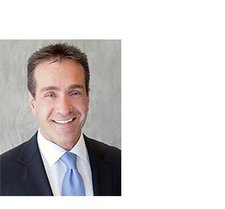
By Sarah Max
May 14, 2019
The past decade has given rise to all kinds of trends, but one is even more alarming than overpriced pressed juice or avocado toast: More parents seem to be providing financial support to their adult children, by offering free room and board, footing the bill for big-ticket items, or covering routine expenses long after kids flee the nest.
U.S. parents now spend $500 billion a year on their 18- to 34-year-old children, or twice their annual contributions to retirement accounts, according to a Bank of America Merrill Lynch study published late last year.

The biggest implication, no doubt, is when parents jeopardize their own financial security for the sake of their offspring. Even for parents who can afford it, “it’s a difficult balance,” says Steve Gallo, a father of six grown kids and partner at U.S. Financial Services in Fairfield, N.J. “You want to give them a better life than you had, but how do you do that without depriving them of key lessons about what it means to be an adult?”
Many financial advisors advocate abstinence—cut the financial apron strings as soon as kids land their first jobs. But there are ways to offer aid that put your adult children on better financial footing without creating an air of entitlement or damaging your own financial situation.
Temper help with prudence
If you’re going to help your offspring, be smart about it. If they’re having a truly tough time—like dealing with a divorce or medical issue—take care to protect yourself while helping them. Increase your emergency cash reserves or move a larger part of your portfolio into short- or intermediate-term bond funds that won’t be as vulnerable to market downturns.
For less critical situations, financial advisors recommend giving in a way that can wean children off assistance, such as paying off credit-card debt if they cut up their cards, or helping with rent if they contribute to a individual retirement account oAnother option is to lend them money. The loan can be structured using government tax guidelines, which outline the lowest rate that can be charged without being considered a gift—currently under 3% for a long-term loan (2% in Canada). If parents have ample resources, they can forgive a portion of the loan every year.
Here are three situations in which, with the right boundaries, it could make sense to bankroll adult children.
Launch a promising career
Let’s say Junior graduates from college and lands a game-changing internship or first job in his or her chosen profession, but there’s a hitch: It doesn’t pay enough to cover rent.
Given how much many parents invest in college—and in all of the violin lessons and test-prep courses—there is logic to helping recent grads over the final hurdle. Just be sure to go in with your eyes wide open.
If this is truly a stepping stone, with a clear path to financial independence, that’s one thing. “If your kid goes to New York and makes $20,000 a year with no immediate prospect for earning more, you could be setting yourself up to support your child indefinitely,” says Anthony Criscuolo, a Certified Financial Planner with Palisades Hudson Financial Group in Fort Lauderdale, Fla.
Likewise, you’ll want to consider your child’s history of managing money, Gallo adds. If he’s a spendthrift, supplementing his income could set a dangerous precedent. If he has always been frugal, this could be a smart arrangement.
Be very clear about why you’re helping, and what expenses you will cover and for how long. Peg your gift to something specific—for example, a percentage of rent—but don’t pay bills on your child’s behalf. “Let them get a sense of how expensive life is,” says Criscuolo, adding that this tack also helps young adults establish credit.
Like most things that parents impart to their offspring—manners, scruples, work ethic—it pays to start early when teaching your kid the value of a dollar and the benefits of saving.
Still, it’s never too late to reinforce good habits. Prime example: nudge your children to start putting away money for retirement as soon as they can. If your daughter lands a job with a 401(k) plan and employer matching benefits, so much the better.
“I’ve had many clients who offer to effectively match their adult kids’ contributions to their registered retirement accounts,” Criscuolo says, noting that this is a good way to make the most of the annual tax-free gift exclusion, currently $15,000.
Help fund a first-home purchase
Many generous parents argue that they would much rather help their kin early in the game—when a financial gift can have a bigger impact.
One way to do this is helping with a home purchase. In the BofA Merrill Lynch survey, 26% of parents said they planned to help their adult kids with a down payment on a house. Each parent can give a child and any spouse up to $15,000 without triggering the gift tax, for a grand total of $60,000 per calendar year.
In competitive housing markets, where cash offers are key, some parents will offer to buy the house outright and structure a personal loan for repayment. “This is potentially a win for everyone,” says Criscuolo. Adult kids can typically negotiate a lower price, and save on mortgage costs and other fees. Parents can earn a competitive interest rate, while jump-starting homeownership for their offspring.
No matter how you structure it, formalize the deal with a private mortgage agreement that spells out the loan’s terms, monthly payments, and other details. “Treat it like a real transaction,” Criscuolo urges.
Just be sure your good deed doesn’t have the unintended consequence of ushering your child into a home he or she can’t afford. “Prices in many markets are so high that it’s easy to get in over your head,” says Gallo, “in which case, you aren’t doing them, or yourself, any favors.”
Email: editors@barrons.com
This Barron's article was legally licensed by AdvisorStream.
Copyright 2019 Dow Jones & Company, Inc. All Rights Reserved.



